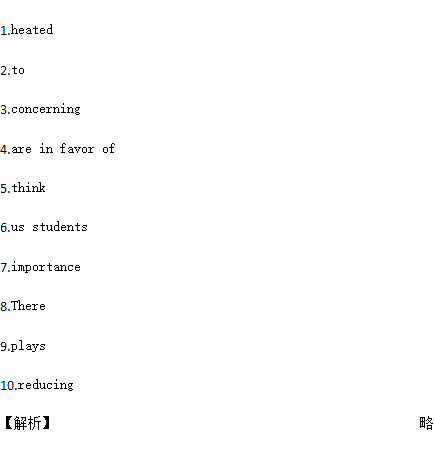题目内容
第一节:短文改错 (共10小题; 每小题1分, 满分10分)
Recently our class have had a heat discussion on whether the score of English should be reduced by 100. Opinions concerned this hot topic vary from person to person.
Some students in favor of it. They thought reducing the score may be a good chance for our students, we are supposed to attach much important to Chinese. It is no need for every student to learn English so hard.
However, others disagree with it. They think it’s English that play an important role in international communication. In their opinion, reduce the English score isn’t a wise choice.
Personally, I agree with the latter.
练习册系列答案
相关题目

